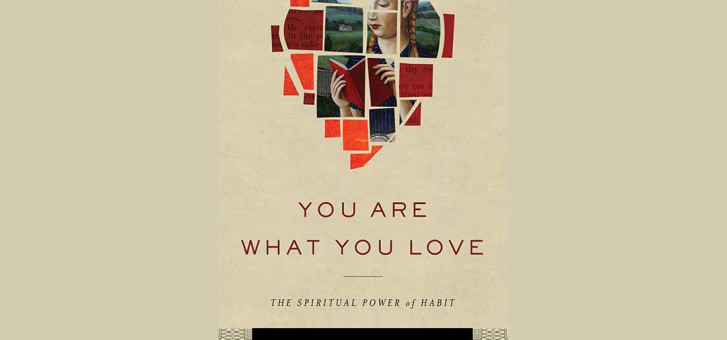You can blame Rene Descartes, the seventeenth-century philosopher, who said, “I think, therefore I am.” When it comes to our spiritual lives, there is the temptation for us in the modern world to think it is all about “right” belief. And while spirituality certainly involves thinking deeply at times, we might be tempted to believe that is all it is about.
In You Are What You Love, James K A Smith reminds us that spirituality concerns what we value most, and we show what we value even when we are not thinking about it by how we spend our lives. What we value is simply what we spend time doing. In short, the habits we pick up show what we value. And Smith wants us to recognise there are ways to shape our habits so that they become virtues not vices.
The philosophers of the Enlightenment believed in “natural” values—values intrinsic in all of us—but what we value is in fact picked up from the people who influence us and the culture that surrounds us, and this culture can appear normal to us, to the extent that we cannot begin to imagine a different way.
In the West in the twenty-first century, we live in a culture saturated with consumerism, advertising and an overriding philosophy that says the individual is king. Smith uses the experience of wandering the shopping centre as an example of how an ideology of shopping not only directs our recreation but dictates how we view ourselves. The ideology of the shopping centre is that “everything new is good,” that “I am the most important person” and that “acquiring new stuff is the ultimate answer to all that troubles me.” Even if we don’t buy, advertising shapes what is important. It is interesting to note that on average, the less TV you watch, the less dissatisfied you are with your life.
Smith is not the first to suggest that how we spend our time indicates what we worship, but he makes the point that what we worship is largely unconscious—a habit. We crave bad things “because our hunger is trained.” Conversely, we can begin to set up good habits. To do this, Smith suggests it starts in Christian worship, the once-a-week communal gathering, which opens to us an alternative to the greed, militarism, individualism and manufactured entertainment of the world around us.
Christian worship is a profoundly counter-cultural activity that sets our egos aside and focuses on relationships. We may be an individualistic society, but individualism simply doesn’t work. Loneliness is epidemic. To be healthy is to rely on community. Worship is where we learn to minimise the individual for the sake of the community.
But there is a caveat. If Christian worship is simply a version of what the world does, an entertainment experience with a “Jesus” layer of icing, we would simply be reinforcing the world’s messages of individualism. Worship should instead turn us from what we value to what God values, which, as we make worship a habit, will also become, in time, what we value. How does worship do this? Through the simple activities of eating, praying, singing and reading with others. Unsurprisingly, these activities are also a recipe for harmony in our families. As they become a habit, they make us unconsciously focused on encouraging and sustaining the people around us.
James K A Smith, You Are What You Love, Baker Publishing Group, 2016.





